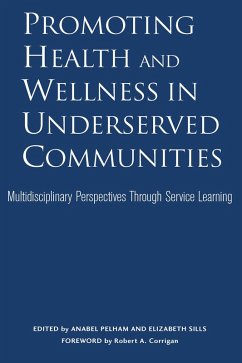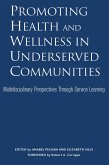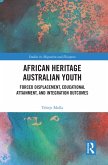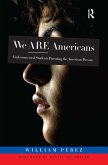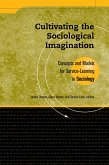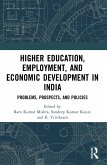Promoting Health and Wellness in Underserved Communities (eBook, ePUB)
Multidisciplinary Perspectives Through Service Learning
Redaktion: Pelham, Anabel; Sills, Elizabeth
33,95 €
33,95 €
inkl. MwSt.
Sofort per Download lieferbar

17 °P sammeln
33,95 €
Als Download kaufen

33,95 €
inkl. MwSt.
Sofort per Download lieferbar

17 °P sammeln
Jetzt verschenken
Alle Infos zum eBook verschenken
33,95 €
inkl. MwSt.
Sofort per Download lieferbar
Alle Infos zum eBook verschenken

17 °P sammeln
Promoting Health and Wellness in Underserved Communities (eBook, ePUB)
Multidisciplinary Perspectives Through Service Learning
Redaktion: Pelham, Anabel; Sills, Elizabeth
- Format: ePub
- Merkliste
- Auf die Merkliste
- Bewerten Bewerten
- Teilen
- Produkt teilen
- Produkterinnerung
- Produkterinnerung

Bitte loggen Sie sich zunächst in Ihr Kundenkonto ein oder registrieren Sie sich bei
bücher.de, um das eBook-Abo tolino select nutzen zu können.
Hier können Sie sich einloggen
Hier können Sie sich einloggen
Sie sind bereits eingeloggt. Klicken Sie auf 2. tolino select Abo, um fortzufahren.

Bitte loggen Sie sich zunächst in Ihr Kundenkonto ein oder registrieren Sie sich bei bücher.de, um das eBook-Abo tolino select nutzen zu können.
Starting from the premise that our health status, vulnerability to accidents and disease, and life spans - as individuals and communities - are determined by the organization, delivery, and financing (or lack thereof) of health care, this book explores how educators and community caretakers teach the complex web of inter-connection.
- Geräte: eReader
- ohne Kopierschutz
- eBook Hilfe
- Größe: 1.27MB
Andere Kunden interessierten sich auch für
![Promoting Health and Wellness in Underserved Communities (eBook, PDF) Promoting Health and Wellness in Underserved Communities (eBook, PDF)]() Promoting Health and Wellness in Underserved Communities (eBook, PDF)33,95 €
Promoting Health and Wellness in Underserved Communities (eBook, PDF)33,95 €![African Heritage Australian Youth (eBook, ePUB) African Heritage Australian Youth (eBook, ePUB)]() Tebeje MollaAfrican Heritage Australian Youth (eBook, ePUB)42,95 €
Tebeje MollaAfrican Heritage Australian Youth (eBook, ePUB)42,95 €![We ARE Americans (eBook, ePUB) We ARE Americans (eBook, ePUB)]() We ARE Americans (eBook, ePUB)28,95 €
We ARE Americans (eBook, ePUB)28,95 €![Cultivating the Sociological Imagination (eBook, ePUB) Cultivating the Sociological Imagination (eBook, ePUB)]() Cultivating the Sociological Imagination (eBook, ePUB)33,95 €
Cultivating the Sociological Imagination (eBook, ePUB)33,95 €![Greening Higher Education in Europe (eBook, ePUB) Greening Higher Education in Europe (eBook, ePUB)]() Magdalena PopowskaGreening Higher Education in Europe (eBook, ePUB)42,95 €
Magdalena PopowskaGreening Higher Education in Europe (eBook, ePUB)42,95 €![Leading Change in Gender and Diversity in Higher Education from Margins to Mainstream (eBook, ePUB) Leading Change in Gender and Diversity in Higher Education from Margins to Mainstream (eBook, ePUB)]() Leading Change in Gender and Diversity in Higher Education from Margins to Mainstream (eBook, ePUB)0,00 €
Leading Change in Gender and Diversity in Higher Education from Margins to Mainstream (eBook, ePUB)0,00 €![Higher Education, Employment, and Economic Development in India (eBook, ePUB) Higher Education, Employment, and Economic Development in India (eBook, ePUB)]() Higher Education, Employment, and Economic Development in India (eBook, ePUB)42,95 €
Higher Education, Employment, and Economic Development in India (eBook, ePUB)42,95 €-
-
-
Starting from the premise that our health status, vulnerability to accidents and disease, and life spans - as individuals and communities - are determined by the organization, delivery, and financing (or lack thereof) of health care, this book explores how educators and community caretakers teach the complex web of inter-connection.
Dieser Download kann aus rechtlichen Gründen nur mit Rechnungsadresse in A, B, BG, CY, CZ, D, DK, EW, E, FIN, F, GR, HR, H, IRL, I, LT, L, LR, M, NL, PL, P, R, S, SLO, SK ausgeliefert werden.
Produktdetails
- Produktdetails
- Verlag: Taylor & Francis eBooks
- Seitenzahl: 260
- Erscheinungstermin: 3. Juli 2023
- Englisch
- ISBN-13: 9781000979138
- Artikelnr.: 68357110
- Verlag: Taylor & Francis eBooks
- Seitenzahl: 260
- Erscheinungstermin: 3. Juli 2023
- Englisch
- ISBN-13: 9781000979138
- Artikelnr.: 68357110
- Herstellerkennzeichnung Die Herstellerinformationen sind derzeit nicht verfügbar.
Anabel Pelham is Professor of Gerontology and Director of the Institute on Gerontology at San Francisco State University. Elizabeth Sills is the Community Health Manager for a major healthcare organization. Robert A. Corrigan is President, San Francisco State University. Gerald S. Eisman is the Acting Director of the Institute for Civic and Community Engagement at San Francisco State University.
Acknowledgments Foreword. Robert A. Corrigan About This Series. Gerald S.
Eisman Activity/Methodology Table Contributors Introduction. Anabel Pelham
and Elizabeth Sills Section One. Models Of Community Engagement 1.
Reaffirming The Role Of Service Learning In Public Health Curricula.
Veronica Acosta-Deprez And Tony Sinay 2. Connections Across Generations.
Dialogue Groups Bridge The Generation Gap. Madeleine Rose 3. Preparing
Future Nurses For A Life Of Civic Engagement. The Disaster Preparedness For
Vulnerable Populations Project. Lynette Landry and Harvey Davis 4.
Cultivating Healthy Habits. Food, Gardens, and Community-Based Learning.
Debora Hammond Section Two. Cross-Cultural Competencies 5. Immigrant Health
Literacy. Reaching Across Languages, Cultures, and Disciplines In Service.
Daryl M. Gordon, Maricel G. Santos, and Gail Weinstein 6. Community-Based
Health Needs Assessments With Culturally Distinct Populations. Joachim O.
F. Reimann and Dolores I. Rodri¿Guez-Reimann 7. The Role Of Community-Based
Participatory Research, Civic Engagement, and Service Learning In Reducing
Health Disparities. An Experience Using Community Health Theaters. Helda
Pinzon-Perez 8. Teaching Public Health Security Through Community-Based and
Case-Based Learning. Louise Gresham, Sonja Ingmanson, and Susan Cheng
Section Three. Community Partnerships 9. From Projects To Partnership.
Using Ethnography To Engage Students. Charles N. Darrah and Katie Plante
Smith 10. The Accidental Service Learner. The Role Of Graduate Education In
Community Service Learning. Jonathan Sills 11. The Economy Of Abundance.
Developing Service Learning On A Grand Scale In A Rapidly Changing
Environment. Kathleen M. Roe, Andrea Nance, Alvin Galang, Anna Bingham,
German Blanco, Ryan Duhe, and Kenneth Lee 12. Using Service Learning To
Teach Community Nutrition. Marjorie Freedman 13. Affecting Community
Wellness With Technology and Cross-Disciplinary Collaboration. Malu Roldan
Eisman Activity/Methodology Table Contributors Introduction. Anabel Pelham
and Elizabeth Sills Section One. Models Of Community Engagement 1.
Reaffirming The Role Of Service Learning In Public Health Curricula.
Veronica Acosta-Deprez And Tony Sinay 2. Connections Across Generations.
Dialogue Groups Bridge The Generation Gap. Madeleine Rose 3. Preparing
Future Nurses For A Life Of Civic Engagement. The Disaster Preparedness For
Vulnerable Populations Project. Lynette Landry and Harvey Davis 4.
Cultivating Healthy Habits. Food, Gardens, and Community-Based Learning.
Debora Hammond Section Two. Cross-Cultural Competencies 5. Immigrant Health
Literacy. Reaching Across Languages, Cultures, and Disciplines In Service.
Daryl M. Gordon, Maricel G. Santos, and Gail Weinstein 6. Community-Based
Health Needs Assessments With Culturally Distinct Populations. Joachim O.
F. Reimann and Dolores I. Rodri¿Guez-Reimann 7. The Role Of Community-Based
Participatory Research, Civic Engagement, and Service Learning In Reducing
Health Disparities. An Experience Using Community Health Theaters. Helda
Pinzon-Perez 8. Teaching Public Health Security Through Community-Based and
Case-Based Learning. Louise Gresham, Sonja Ingmanson, and Susan Cheng
Section Three. Community Partnerships 9. From Projects To Partnership.
Using Ethnography To Engage Students. Charles N. Darrah and Katie Plante
Smith 10. The Accidental Service Learner. The Role Of Graduate Education In
Community Service Learning. Jonathan Sills 11. The Economy Of Abundance.
Developing Service Learning On A Grand Scale In A Rapidly Changing
Environment. Kathleen M. Roe, Andrea Nance, Alvin Galang, Anna Bingham,
German Blanco, Ryan Duhe, and Kenneth Lee 12. Using Service Learning To
Teach Community Nutrition. Marjorie Freedman 13. Affecting Community
Wellness With Technology and Cross-Disciplinary Collaboration. Malu Roldan
Acknowledgments Foreword. Robert A. Corrigan About This Series. Gerald S.
Eisman Activity/Methodology Table Contributors Introduction. Anabel Pelham
and Elizabeth Sills Section One. Models Of Community Engagement 1.
Reaffirming The Role Of Service Learning In Public Health Curricula.
Veronica Acosta-Deprez And Tony Sinay 2. Connections Across Generations.
Dialogue Groups Bridge The Generation Gap. Madeleine Rose 3. Preparing
Future Nurses For A Life Of Civic Engagement. The Disaster Preparedness For
Vulnerable Populations Project. Lynette Landry and Harvey Davis 4.
Cultivating Healthy Habits. Food, Gardens, and Community-Based Learning.
Debora Hammond Section Two. Cross-Cultural Competencies 5. Immigrant Health
Literacy. Reaching Across Languages, Cultures, and Disciplines In Service.
Daryl M. Gordon, Maricel G. Santos, and Gail Weinstein 6. Community-Based
Health Needs Assessments With Culturally Distinct Populations. Joachim O.
F. Reimann and Dolores I. Rodri¿Guez-Reimann 7. The Role Of Community-Based
Participatory Research, Civic Engagement, and Service Learning In Reducing
Health Disparities. An Experience Using Community Health Theaters. Helda
Pinzon-Perez 8. Teaching Public Health Security Through Community-Based and
Case-Based Learning. Louise Gresham, Sonja Ingmanson, and Susan Cheng
Section Three. Community Partnerships 9. From Projects To Partnership.
Using Ethnography To Engage Students. Charles N. Darrah and Katie Plante
Smith 10. The Accidental Service Learner. The Role Of Graduate Education In
Community Service Learning. Jonathan Sills 11. The Economy Of Abundance.
Developing Service Learning On A Grand Scale In A Rapidly Changing
Environment. Kathleen M. Roe, Andrea Nance, Alvin Galang, Anna Bingham,
German Blanco, Ryan Duhe, and Kenneth Lee 12. Using Service Learning To
Teach Community Nutrition. Marjorie Freedman 13. Affecting Community
Wellness With Technology and Cross-Disciplinary Collaboration. Malu Roldan
Eisman Activity/Methodology Table Contributors Introduction. Anabel Pelham
and Elizabeth Sills Section One. Models Of Community Engagement 1.
Reaffirming The Role Of Service Learning In Public Health Curricula.
Veronica Acosta-Deprez And Tony Sinay 2. Connections Across Generations.
Dialogue Groups Bridge The Generation Gap. Madeleine Rose 3. Preparing
Future Nurses For A Life Of Civic Engagement. The Disaster Preparedness For
Vulnerable Populations Project. Lynette Landry and Harvey Davis 4.
Cultivating Healthy Habits. Food, Gardens, and Community-Based Learning.
Debora Hammond Section Two. Cross-Cultural Competencies 5. Immigrant Health
Literacy. Reaching Across Languages, Cultures, and Disciplines In Service.
Daryl M. Gordon, Maricel G. Santos, and Gail Weinstein 6. Community-Based
Health Needs Assessments With Culturally Distinct Populations. Joachim O.
F. Reimann and Dolores I. Rodri¿Guez-Reimann 7. The Role Of Community-Based
Participatory Research, Civic Engagement, and Service Learning In Reducing
Health Disparities. An Experience Using Community Health Theaters. Helda
Pinzon-Perez 8. Teaching Public Health Security Through Community-Based and
Case-Based Learning. Louise Gresham, Sonja Ingmanson, and Susan Cheng
Section Three. Community Partnerships 9. From Projects To Partnership.
Using Ethnography To Engage Students. Charles N. Darrah and Katie Plante
Smith 10. The Accidental Service Learner. The Role Of Graduate Education In
Community Service Learning. Jonathan Sills 11. The Economy Of Abundance.
Developing Service Learning On A Grand Scale In A Rapidly Changing
Environment. Kathleen M. Roe, Andrea Nance, Alvin Galang, Anna Bingham,
German Blanco, Ryan Duhe, and Kenneth Lee 12. Using Service Learning To
Teach Community Nutrition. Marjorie Freedman 13. Affecting Community
Wellness With Technology and Cross-Disciplinary Collaboration. Malu Roldan
